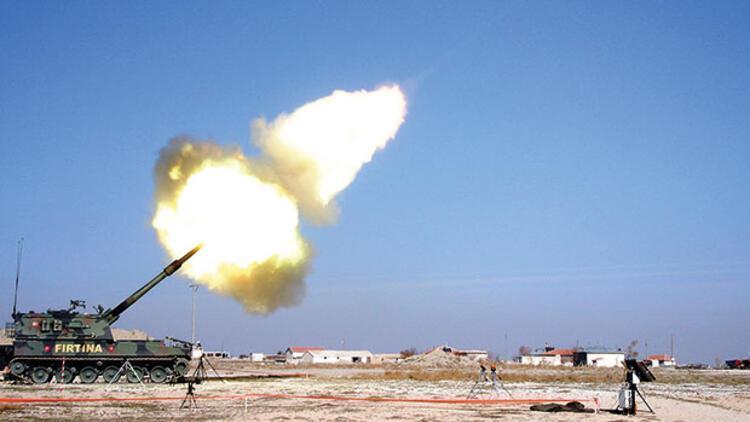
Turkey said on Feb. 3 its military hit 54 of Syrian regime’s targets after eight Turkish military personnel were killed by shelling in Idlib in northwest Syria, where fighting threatens to test ties between Ankara and Moscow.
During a visit to the bordering Hatay province, Defense Minister Hulusi Akar said 54 regime targets have been hit and 76 soldiers of the regime forces have been neutralized.
The peace process for Syria which started under the agreements drawn up in Sochi, Russia last year and Astana, still continue, Akar conveyed. He added that the cease-fires were announced within the agreements yet were violated by the regime “every time,” thus failing to become lasting.
"In this context, we continue our work and take additional measures to ensure the continuity of the cease-fires, to ensure the security of our troops, and to prevent migration and end the humanitarian drama in which people live in difficult terrain and climate conditions," Akar said.
Turkish and Syrian troops traded fire in northwest Syria on Feb. 3, with more than 20 reported dead, further raising tension between Ankara and regime ally Moscow over the war-torn Idlib region on Turkey's border.
Russian airstrikes also killed 14 civilians in the same area, a monitoring group said, as the World Health Organization warned dozens of medical facilities had been closed amid a fierce government offensive.
Violence in recent weeks has caused one of the worst waves of displacement in the nine-year-old Syrian conflict.
Feb. 3’s tit-for-tat shelling between Turkish and Russian-backed Syrian forces was the deadliest since Turkey deployed troops to Syria in 2016, ratcheting up tensions between the conflict's two main foreign protagonists.
'Turkey told Russia where its troops would be'
Akar also underlined that Moscow was informed beforehand about the Turkish units’ deployment. He added that some Turkish troop deployments were planned and implemented to provide necessary support in the field.
The deployments were coordinated with Russia, which was given the necessary information in terms of both location and time, he said.
Russian defense ministry had said Turkish troops came under fire from the regime forces after moving without notifying Russia. Nevertheless, Turkey said it had coordinated its military movements with Moscow.
Despite all the communication and information given out, Turkish troops were still fired on, the defense chief said.
Turkish, Russian foreign ministers discuss Idlib
Meanwhile, Turkey’s Foreign Minister Mevlüt Çavuşoğlu spoke with his Russian counterpart over the phone on Feb. 3, state-run Anadolu Agency reported.
Çavuşoğlu and Sergey Lavrov discussed the tensions in Idlib between Ankara and Moscow, Anadolu Agency cited anonymous diplomatic sources as saying.
UN calls for de-escalation
The U.N. on Feb. 3 said it is “alarmed” by recent clashes between Turkey and Syria in Idlib, and called for a “rapid de-escalatio”n and a “return to peaceful negotiations.”
Speaking with reporters on Feb. 3, U.N. spokesman Stephane Dujarric warned of clashes between forces loyal to Assad and Turkey.
“We're very much alarmed by the reports that we saw of clashes between Syrian government troops and Turkish forces in northwest Syria,” Dujarric said at U.N. headquarters in New York.
“I think this escalation underscores yet again the threat to regional and international peace and security caused by the ongoing conflict in Syria.”
Dujarric described ongoing contacts “at various levels” with officials in Syria, Turkey, Russia and other powers involved in Syria's civil war, with a message to “de-escalate” and reduce the death toll in the northwestern province of Idlib.
"We also remain deeply concerned by the continuing reports of civilian casualties and the large-scale displacement of civilians, resulting from the current Syrian Government offensive inside the de-escalation zone,” said Dujarric.
"The secretary-general [Antonio Guterres] reaffirms yet again that no attacks on civilians or civilian infrastructure should take place.”